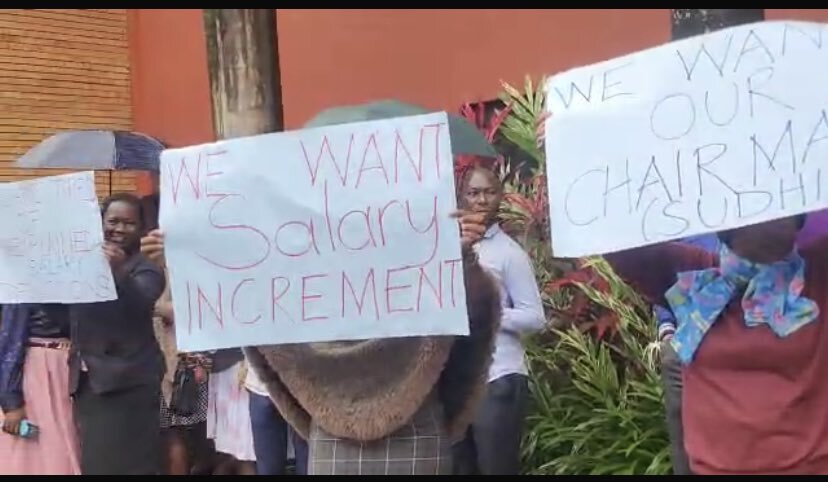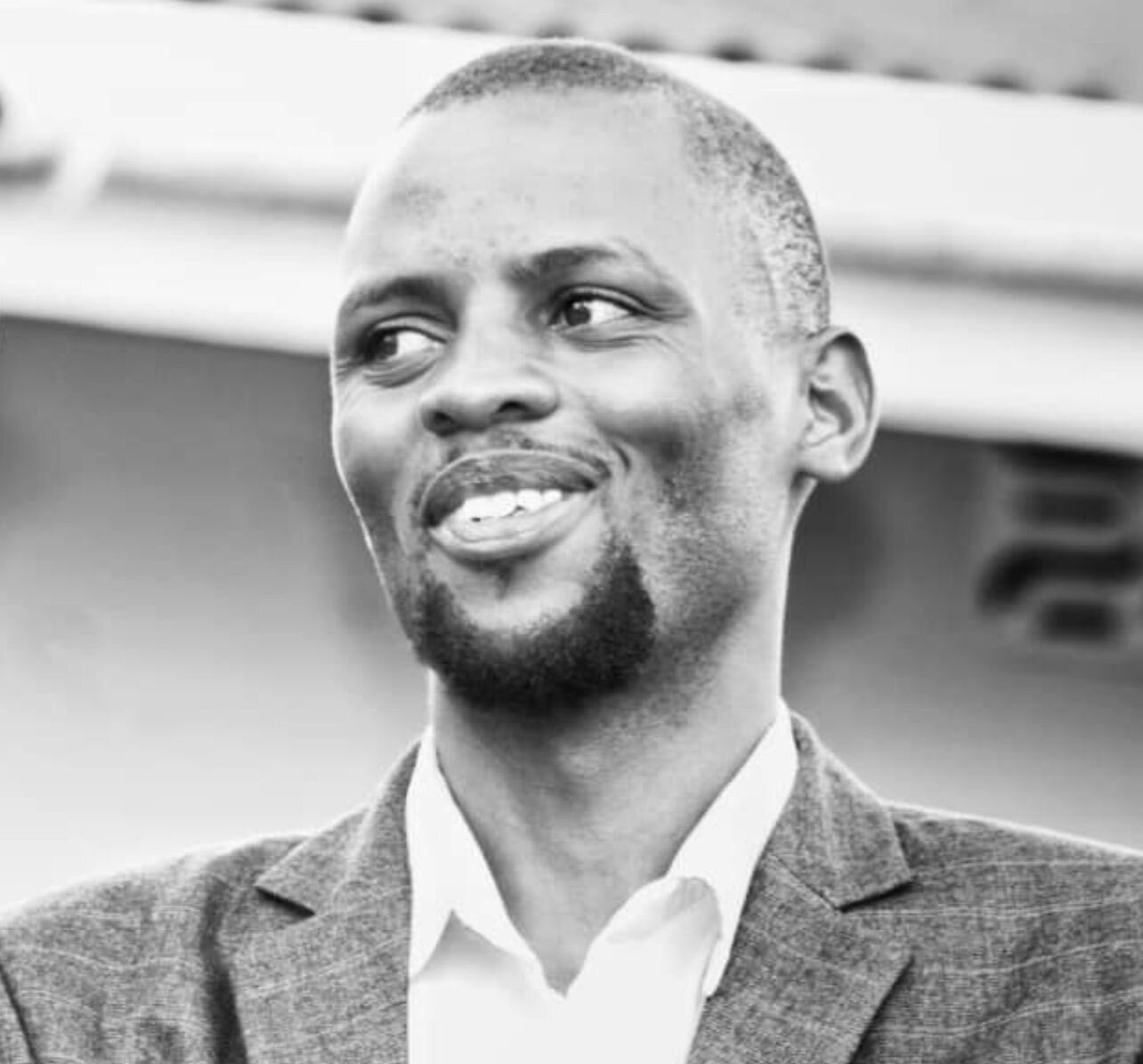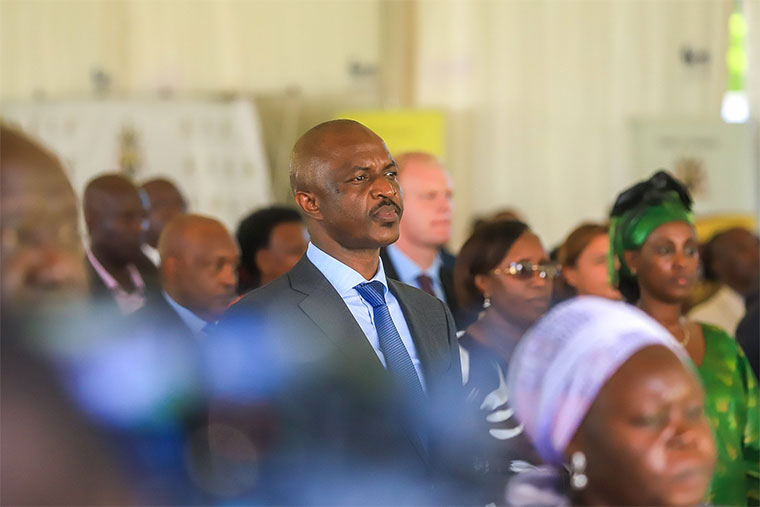There was a female news anchor who hopped from one TV station to another in Uganda. She is fairly talented and has passion for the industry. She is also beautiful.
The trouble is wherever she worked, senior executives pestered her for sex. At one media institution, there was this short executive who used to compliment her looks.
One day, the executive bluntly told her that “she has to give him some.” She declined.
Next day, the news director summoned her. He told her she would no longer anchor news for the time being.
“Why?” she asked the news director. “Those are the instructions I have been given,” the news director said.
A week later, she resigned and got a job at another media organization, a television station.
A month into her new job, the entire cycle resumed. Senior news executives started pestering her for sex. She resisted and resisted. Then she gave in.
“It was the worst day of her life, said one of her former colleagues. “When the act happened, she was never the same. Sometimes she would just break down and cry.”
She later left the news organization and the media industry altogether, her dreams shattered, her dignity in tatters.
The bitter truth is sexual harassment remains pervasive in Uganda’s media industry.
A 2021 global study analysing sexual harassment in 20 countries by Women in News (WIN) revealed that women are two times more likely to experience sexual harassment than men at the workplace.
In Uganda, 69% of female journalists reported having been sexually harassed. The report further showed that majority of the sexual harassment cases are unreported.
Sexual harassment in many newsrooms comes down to the dynamics of power.
At newspapers, radio stations, TV stations and other news organizations, most editors and senior news executives who determine key decisions are male.
They wield so much power that they determine the fate of reporters under their charge.
Most of the perpetrators tend to be senior news executives who wield power and therefore can determine how a career pans out. The victims, 99.9% of the time are females, particularly interns or employees looking to get ahead in the rat race.
The perpetrators
These come in several shapes and sizes. One thing in common is that they wield power and influence.
There is a notorious senior news executive at one of the leading newspapers in this country. With experience spanning more than 20 years, this male executive is a legendary sex predator. He targets new female employees and interns.
Young interns are always cautioned to be careful in his presence but some how they can’t survive him. He drives a nice car, hangs out in nice places and determines whether a story will run or not.
Once someone barged into his office only to find him busy receiving a BJ from a young female journalist.
We have been told that several complaints have been raised against him at senior management level but nothing has been done. He is a ‘star performer’ and is one of the brand’s most visible individuals.
He is still going strong and shows no signs of slowing down as far as the harassment of female recruits is concerned.
Then there is another “big man” at a prominent television station in Uganda. This man boasts openly about his sexual conquests. He has impregnated two female interns.
One time a parent of a young female intern stormed the organization after her daughter had not returned home the previous night. It turns out the intern had slept over at his place. The parent threatened to involve police and other authorities but in the end the intern had to leave.
This “big man” can be rude and does not take rejection well. In editorial meetings, he has been known to disparage female employees and interns who rejected his overtures. Many have had to leave.
After complaints of sexual harassment became too much to bear, management of the news organization was forced to open an email address where staff can anonymously report their complaints.
Yet one of the three people with logins to this email is also a sex predator.
At another television station, there is a senior news executive who sired twins with a news anchor under his supervision. If you want to get on the wrong end of this executive, call him Ssalongo.
The victims
They are virtually female although there is an odd case of a male journalist who was sexually harassed by a male supervisor at one of the TV stations.
For many young women starting out in the industry, they face a stark choice between giving in to unwanted sexual advances or risking career stagnation.
Many of the victims tend to be young and naïve. One of the victims often said her dream was to work at this particular station because of the perception she had of it.
But after falling victim, she hated then place and advised friends never to seek employment there.
Then there is Anita (not her real name). She is a former journalist at a leading radio station in Kampala and recalls her experience.
“I was passionate about journalism, and I thought working hard would get me recognized. But my boss kept making inappropriate advances. When I refused, I was suddenly no longer considered for new assignments, and eventually, I was told I wasn’t ‘the right fit’ for the company,” she said.
Many victims of sexual harassment at media organizations choose to suffer silently. Some have entertained suicidal thoughts and have had to undergo counselling.
A female news anchor at a television station said complaints are frequently dismissed.
“If you report harassment, you’re seen as someone who causes trouble. I’ve known colleagues who reported their bosses only to be accused of being difficult to work with,” she says.
Those who leave journalism often feel disillusioned and robbed of their potential. This exodus of female talent from the industry creates a significant gap, both in terms of gender representation and in the diversity of voices and perspectives in the media.
Some organizations are trying to address the issue, but progress is slow. Many have policies that stipulate harsh punishment for perpetrators of sexual harassment but they just remain on paper or pasted in boardrooms for visitors and clients.
In the words of one former journalist who left the profession more than ten years ago, “The media is supposed to hold power accountable, yet inside our own newsrooms, power goes unchecked. Until we fix that, we’re failing not just as women, but as journalists.”







